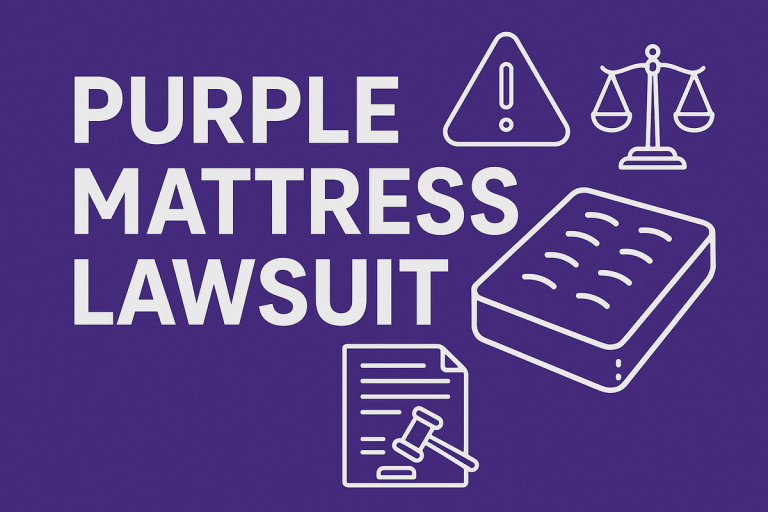Arias Agencies faces serious claims from former agents and other parties tied to its life insurance sales operation. The Arias Agencies lawsuit centers on allegations of sexual harassment, workplace misconduct, and disputed sales practices at a Pennsylvania office tied to American Income Life. Federal court records confirm litigation filed by former agent Renee Zinsky that named Arias Agencies, Simon Arias III, Michael Russin, American Income Life Insurance Company, and related entities.
Public reporting expanded the scope of the dispute. Investigative coverage described allegations of sexual misconduct, workplace drug use, and unethical business practices. Defendants denied wrongdoing. A judge later moved portions of the case involving Arias Agencies and American Income Life into arbitration rather than allowing those claims to proceed in open court.
Regulatory action also appears in the public record. Nebraska insurance regulators issued a summary order to cease and desist against Arias Agencies in conjunction with American Income Life. The order addressed unauthorized insurance activity and followed a consumer complaint tied to marketing practices.
How the Arias Agencies lawsuit started
A federal lawsuit filed in the Western District of Pennsylvania placed Arias Agencies under immediate scrutiny. Court records identify Renee Zinsky as the plaintiff and list multiple defendants connected to the agency’s leadership and corporate structure. The filing alleged misconduct during her time as an insurance agent and raised concerns about workplace culture and sales ethics.
Investigative reporting soon followed. Journalists detailed allegations involving sexual harassment and assault tied to offsite events. Reports also described claims of drug use and unsafe working conditions. The reporting stated that all named defendants denied the allegations.
Arbitration became a central procedural issue. A judge enforced arbitration agreements covering certain claims against Arias Agencies and American Income Life. That decision redirected parts of the dispute away from public court proceedings.
Background of the case
Arias Agencies operates as a sales organization affiliated with American Income Life. The agency recruits and manages insurance agents under a performance-driven model. Public records and reporting describe an environment marked by aggressive recruiting and sales pressure.
Regulatory records show a separate compliance issue in Nebraska. State insurance officials concluded that Arias Agencies and American Income Life engaged in insurance-related activity without proper authorization. The agency received a cease and desist order tied to marketing practices and referral incentives.
Business reporting linked the controversy to broader reputational pressure within the insurance sales ecosystem. The allegations triggered scrutiny of oversight, leadership conduct, and compliance responsibilities.
Key allegations in the Arias Agencies lawsuit
A brief transition helps organize the claims. Each allegation reflects a different area of legal exposure. Courts and arbitrators evaluate these theories separately.
Alleged sexual harassment and assault
The lawsuit alleges that Renee Zinsky experienced sexual harassment and assault during her time with Arias Agencies. Reports described incidents tied to company events and alleged incapacitation. The allegations include claims of misconduct by leadership figures. All defendants denied the claims.
Alleged workplace drug use and hostile environment
Investigative reporting described allegations of illicit drug use at workplace gatherings. The reports portrayed a hostile environment tied to leadership behavior. The company disputed the claims and rejected descriptions of unsafe conditions.
Alleged insurance sales misconduct and consumer harm
The lawsuit also alleged unethical sales practices. Claims included forged signatures, unauthorized withdrawals, and misuse of customer identities. Defendants denied wrongdoing and contested the allegations.
Alleged misclassification and unpaid labor
Commentary surrounding the case referenced concerns about agent classification and compensation. Public records confirm the lawsuit and arbitration proceedings. Courts and arbitrators continue reviewing the claims tied to employment status and compensation.
Timeline of the Arias Agencies lawsuit case
A short transition helps frame the chronology. The timeline below follows court filings, regulatory action, and procedural rulings in the public record.
July 2020 – Nebraska regulatory complaint received
Nebraska insurance regulators received a consumer complaint in July 2020 tied to marketing activity involving Arias Agencies and American Income Life. The complaint referenced referral incentives connected to insurance solicitation. Regulators later cited this complaint as the basis for enforcement review.
October 2020 – Nebraska cease and desist order issued
Nebraska’s Department of Insurance issued a Summary Order to Cease and Desist in October 2020 against Arias Agencies in conjunction with American Income Life. The order stated that regulators had reasonable cause to believe the respondents engaged in insurance business in Nebraska without proper authorization or registration. The order required corrective action.
April 2022 – Federal lawsuit filed in Pennsylvania
Former agent Renee Zinsky filed a federal lawsuit in April 2022 in the U.S. District Court for the Western District of Pennsylvania. The complaint named Arias Agencies, Simon Arias III, Michael Russin, American Income Life Insurance Company, and related entities. The lawsuit alleged sexual harassment, assault, workplace misconduct, and unethical business practices.
May 2022 – Case docketed and defendants served
Federal court records show the case formally docketed in May 2022. Defendants appeared through counsel. Early procedural motions followed. The litigation entered the pretrial phase.
2022 to 2023 – Public investigative reporting released
Investigative news outlets published detailed reporting throughout 2022 and into 2023. The reporting outlined allegations from the lawsuit, described the workplace culture claims, and included denials from Arias Agencies and other defendants. The coverage brought national attention to the dispute.
Mid-2023 – Court orders arbitration for certain claims
A federal judge issued an order in mid-2023 compelling arbitration for portions of the dispute involving Arias Agencies and American Income Life. The ruling enforced arbitration agreements rather than deciding the merits of the allegations. Claims against certain parties continued on separate procedural tracks.
Late 2023 – Arbitration proceedings underway
By late 2023, arbitration proceedings moved forward for claims subject to arbitration. Arbitration filings and outcomes were not publicly detailed due to confidentiality rules common in arbitration matters.
2024 to present – No public settlement announced
Court dockets and public reporting through 2024 and 2025 show no court-approved global settlement resolving all claims tied to the Arias Agencies lawsuit. Arbitration activity continues outside public view. No final judicial ruling on the merits appears in publicly available records.
Current status
Federal case tracking and public reporting show continued arbitration activity. Courts have not issued a final ruling on the merits of the allegations. The dispute remains unresolved in public records.
Important clarification
Arbitration outcomes often remain confidential.
Regulatory orders remain public records.
Court filings confirm procedural steps rather than factual findings.
Additional case details
Coverage of the Arias Agencies lawsuit connects to broader concerns about oversight in high-pressure sales organizations. Business reporting described reputational fallout affecting affiliated entities.
Regulatory action highlights a separate risk channel. Licensing and marketing compliance issues can trigger enforcement even when civil cases focus on workplace conduct.
Conclusion
Arias Agencies faces ongoing legal scrutiny shaped by a federal lawsuit, arbitration orders, investigative reporting, and state regulatory action. The allegations remain unproven until a court, arbitrator, or regulator issues formal findings. The case matters because it raises questions about workplace safety, sales ethics, and compliance oversight. The final outcomes will depend on evidence and legal process rather than public accusation.
Short Disclaimer
All information in this article comes from verified public court records, regulatory actions, and reputable news reporting. Allegations remain allegations unless confirmed by a court, arbitrator, or regulator.
Ayesha Awais is a content writer for JudicialNexus.com, covering accident reports, injury-related news, lawsuits, and public safety updates. All content is informational in nature and based on publicly available sources.




